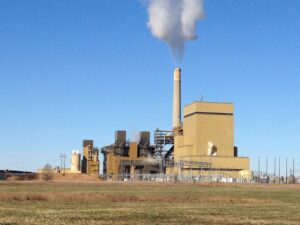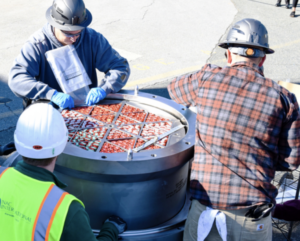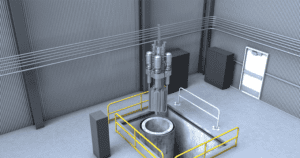The Nuclear Regulatory Commission’s (NRC’s) final rule governing long-term spent nuclear fuel storage onsite at U.S. power plants is illegal and should be overturned, the attorneys general of New York, Connecticut, and Vermont claim in a legal challenge filed on Monday.
In a petition filed with the U.S. Court of Appeals for the D.C. Circuit, the attorneys general allege that the NRC “acted arbitrarily, abused its discretion, and violated the National Environmental Policy Act (NEPA), the Administrative Procedure Act, the Atomic Energy Act, the Commission’s policies and regulations, the Council on Environmental Quality’s regulations, and other applicable laws and regulations in promulgating the Continued Storage Rule” and supporting documents. The lawsuit asks the court to vacate the rule and send it back to the NRC for a more complete environmental analysis.
The NRC’s September-finalized Continued Storage of Spent Nuclear Fuelrule revises the Waste Confidence Decision, which the D.C. Circuit vacated in June 2012. That decision requires the NRC to complete a review of the public health, safety, and environmental hazards that long-term onsite spent nuclear fuel storage would pose. It is widely regarded as a legal victory for the states of New York, New Jersey, Connecticut, and Vermont, as well as a number of environmental groups that had petitioned the court for a review of the NRC’s temporary storage rule.
The Continued Storage rule, which became effective on Oct. 20, essentially adopts findings from the NRC’s supporting generic environmental impact statement (GEIS)and concludes that spent nuclear fuel can be safely managed in dry casks during short-term (up to 60 years), long-term (100 years after the initial 60 years), and indefinite timeframes.
According to Vermont’s Attorney General William Sorrel, the 2012 decision should have led the NRC to perform a full and detailed assessment of the risks involved and the environmental impacts of long-term fuel storage. “But it did not, so we are going back to court to ensure that the NRC complies with its legal obligations,” he said in a statement on Monday.
New York Attorney General Eric Schneiderman on Monday said that the NRC “has turned its responsibilities on their head—focusing on issues that are unrelated to the risks posed to the environment, public health, and safety. The NRC’s approach is wrong and illegal, and I will continue to fight to ensure that our communities receive the full and detailed accounting of the risks of long-term, on-site nuclear waste storage that they deserve.”
—Sonal Patel, associate editor (@POWERmagazine, @sonalcpatel)








